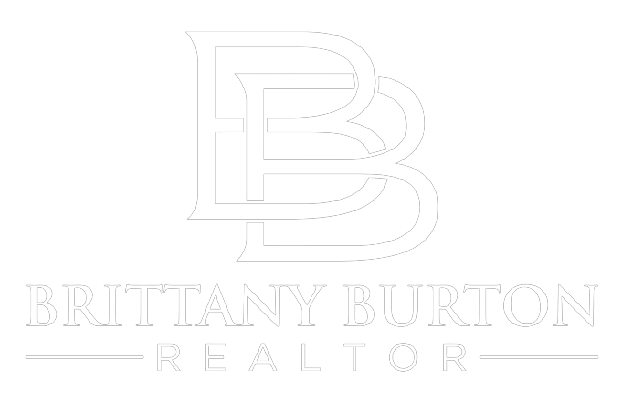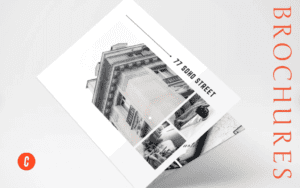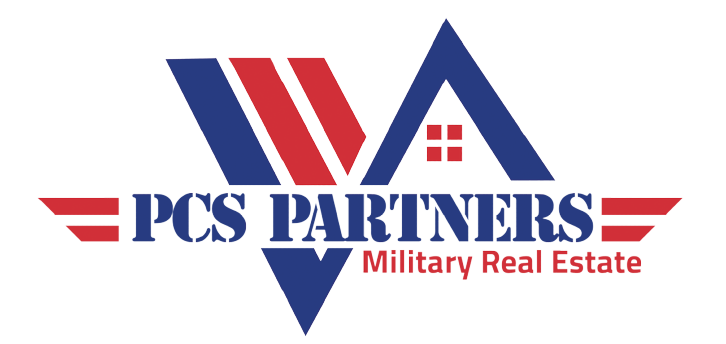A co-signer can help you qualify for your first mortgage. Before asking a trusted family member or friend to co-sign your loan, review what a co-signer does and whether it’s more appropriate to ask for a mortgage co-borrower instead.
Home buyers and co-borrowers are in a similar position. The buyer and co-signer do not.
This article reviews what a mortgage co-signer is, when to use a co-signer instead of a co-borrower, and what the co-signer requirements are for the most common mortgage loan types.
What is a mortgage cosigner?
A mortgage cosigner is a person who agrees to make mortgage payments on the homeowner’s behalf if the homeowner falls behind or defaults on their payments.
The primary use case for a mortgage co-signer is when a home buyer wants to purchase a home but fails to qualify for a mortgage based on their household income. Cosigners are added to the mortgage application to add additional income.
Mortgage co-signers are guarantors.
Cosigners assume responsibility for a mortgage. However, co-signers do not receive any of the homeowner tax benefits and do not receive any savings.
Because of the imbalance between risk and reward, co-signers are usually family members such as parents, grandparents or siblings. Sometimes, a child co-owns the mortgage with a parent.
Cosigner Vs. Co-borrower: What’s the difference?
The difference between a co-signer and a co-borrower is that co-borrowers are also co-owners of the home.
Regardless of where they live in the home, the co-borrower is named on its title or deed and owns an equal percentage of the property unless a separate legal agreement limits their share.
As co-owners of a property, co-borrowers can block a future home sale, mortgage refinance, or assignment of mortgage deed if it is not in their best interests. They can also intervene in house renovations and permitting.
Co-signers on a mortgage, by comparison, do not hold any homeowner rights. A cosigner cannot block the sale, home repairs, or refinance to lower rates.
How to get a cosigner on your mortgage loan
Most mortgage lenders allow cosigners as long as the cosigner meets the following standard conditions:
- Cosigner cannot have a financial interest in the property
- The cosigner must have a personal relationship with the buyer
- The cosigner’s relationship with the buyer must have existed prior to the purchase
Lenders may require an affidavit certifying the relationship between the buyer and the cosigner and that the relationship survives the life of the mortgage.
To use a cosigner with your mortgage:
- Start an Online Mortgage Application
- Add your co-signer as an additional mortgage borrower
- After your mortgage is pre-approved, alert the lender to designate the additional borrower as a “cosigner.”
Start your online mortgage application here.
Cosigner Requirements Based on Mortgage Type
Cosigner requirements vary by mortgage type. Here’s an analysis of co-signing requirements for conventional loans, FHA loans, USDA loans, and VA loans.
Conventional Loan Cosigner Requirements
Conventional mortgages are loans backed by Fannie Mae and Freddie Mac, which can include low-down payment programs such as HomeReady and Home Possible and traditional 97 mortgages.
In addition to the standard cosigner guidelines, traditional mortgage cosigners must meet the following program standards:
- 620 FICO score or higher
- Digital Income Verification, or W-2 and Federal Tax Return
- digital asset verification, or bank statement
Traditional mortgage co-signers may not have a stake in the purchase mortgage transaction.
FHA Loan Cosigner Requirements
FHA mortgages are mortgages insured by the Federal Housing Administration. The FHA allows mortgage buyers to make a down payment of 3.5 percent.
FHA cosigners must meet the standard mortgage cosigner guidelines and the following criteria:
- 580 FICO score or higher
- Digital Income Verification, or W-2 and Federal Tax Return
- digital asset verification, or bank statement
FHA mortgage cosigners are not required to be US citizens. Nevertheless, they must make their primary residence within the United States and its territories.
VA Loan Cosigner Requirements
VA mortgages are mortgages guaranteed by the Department of Veterans Affairs. VA mortgages require neither a down payment nor mortgage insurance.
Co-signers on VA loans must meet the standard mortgage co-signer guidelines as well as the following eligibility criteria:
- 620 FICO score or higher
- Digital Income Verification, or W-2 and Federal Tax Return
- digital asset verification, or bank statement
VA mortgage cosigners must be active-duty military members, honorably discharged veterans, or surviving spouses.
usda mortgage cosigner requirements
USDA mortgages are mortgages guaranteed by the US Department of Agriculture. USDA mortgages are 100% loans with low mortgage insurance premiums and low interest rates.
USDA loans do not allow cosigners.
The Risk Your Mortgage Cosigner Assumes
Mortgage cosigners receive no tangible benefit from co-signing a loan. They assume the obligation in favor of home buyers who might not otherwise be mortgage-approved.
It’s a risky proposition.
To help protect cosigners, the Federal Trade Commission requires cosigners on loans to read and sign a document titled “Notice to Cosigner” highlighting the risks of a cosigned loan. Here are the key points outlined:
Cosigners must ensure that they can afford the buyer’s debt
If the borrower doesn’t pay the loan, you have to. Be sure that you can afford to pay if you have to, and that you are willing to accept the responsibility.
Cosigners may be liable for late fees and collection costs.
If the borrower doesn’t pay, you may have to pay back the full amount of the loan. You may also have to pay late fees or collection costs, which add to this amount.
Co-signers can keep their wages or be prosecuted
The creditor can recover this debt from you without first trying to recover from the borrower. The creditor can use the same collection methods against you that can be used against the borrower, such as suing you, garnishing your wages, etc. If this loan is ever in default, this fact can become a part of your credit record.
This notice is not a contract that makes you liable for the loan.

mortgage
prior approval
in minutes
get pre-approved
Cosigner options
Mortgage cosigners risk their finances and creditworthiness for home buyers who are deemed too risky by lenders to approve. If this makes you uncomfortable as a buyer, there are alternatives to having a cosigner.
Cosigner Options When Your Income Is Very Low
There are three options for finding a cosigner when your income is too low to qualify for a mortgage.
One: Add an income earning co-borrower to your mortgage application. Co-borrowers are co-signers who get the ownership rights of your property. A co-borrower can lower your debt-to-income ratio to help you get approved for your mortgage.
Two: Pay off your existing loans. By reducing your overall debt burden, you lower your debt-to-income ratio and can get a mortgage pre-approved with your current household income.
Three: Ask family or friends for a cash gift of the downpayment. The cash gift of a downpayment lowers your total loan size and lowers your estimated mortgage payment. Lower household income is required to be approved for lower mortgage payments.
Cosigner Options When Your Credit Score Is Too Low
A co-signer cannot offset a non-qualifying credit score. If your credit score is too low to be mortgage-approved, improve your credit by turning on your accounts and lowering your credit utilization ratio.
You may also want to enroll in a credit-building program like StellarFi, which claims to boost home buyer credit scores by up to 20 points in a month.
Cosigner Alternatives When You Don’t Have a Large Down Payment
A cosigner may not be necessary when you don’t have enough money left over for the down payment. Low- and no-down payment mortgages may be an option.
Home buyers can apply for a 100% USDA loan or a 97% conventional mortgage without the help of a cosigner. They can also apply for first-time home buyer grants and tax incentives through federal, state and local agencies.
Cash downpayments can also convert cosigners to gift mortgages. Cash gifts do not require additional mortgage borrowers to apply.
Get pre-approved for a no or low down payment mortgage.
Frequently Asked Questions About Mortgage Cosigning
Who Should Cosign My Mortgage?
A mortgage co-signer should be a family member or friend with excellent credit and a long history of on-time payments to creditors.
What is the minimum credit score for a mortgage with a cosigner?
The minimum credit score for mortgages with cosigners varies by mortgage type. All parties to the mortgage must meet the minimum limits. A 620 credit score is required for a conventional mortgage. VA mortgages require a 620 credit score. An FHA mortgage requires a 580 credit score.
Does Co-Signing a Mortgage Hurt a Co-Signer’s Credit Score?
Co-signing a mortgage will boost one co-signer’s credit score when payments are made on time and lower one co-signer’s credit score when payments are past due.
Does cosigning on a mortgage provide tax benefits to the cosigner?
Co-signers do not receive tax benefits for signing the mortgage. Tax benefits are reserved for the homeowner, who makes payments to the lender. Consult your accountant for personal tax details regarding the mortgage interest tax deduction.
Can a married couple have a cosigner at home?
Yes, married couples can use a mortgage cosigner. Co-signers must be family members or friends with a pre-existing relationship who will be appropriately off the mortgage.
Is a cosigner of the mortgage the owner of the home?
No, mortgage co-signers are not co-owners of the home. Cosigners are obligated on a home loan with no right or claim to the underlying property.
How long does a co-signer stay on the mortgage?
A cosigner is a mortgage guarantor and cannot be removed from an active mortgage. The cosigner remains on the mortgage as long as it is active.
Can I remove a cosigner from my mortgage at a later date?
Cosigners cannot be removed from an active mortgage. The mortgage must be refinanced or paid off in full to remove a cosigner’s credit obligation.
What is a non-resident co-borrower?
A non-residential co-borrower is a co-borrower who resides in a property other than the subject property. Non-resident co-borrowers are often family members.

mortgage
prior approval
in minutes
get pre-approved





